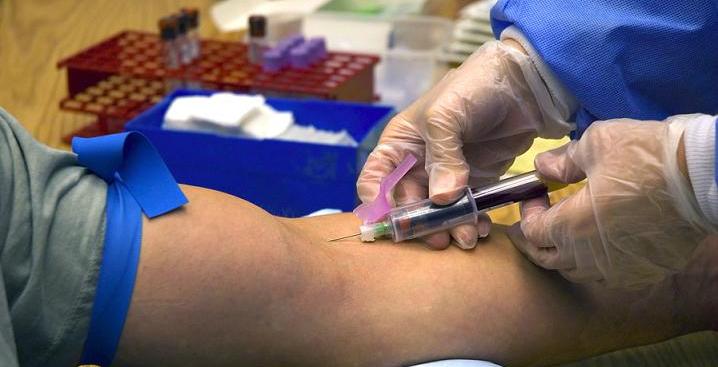Become a Certified Phlebotomy & EKG Technician: Your Gateway to Healthcare Careers
Are you passionate about helping others and fascinated by teh medical field? If so, pursuing certification as a phlebotomy and EKG technician might be the perfect career move for you. These healthcare roles serve as excellent entry points into the medical industry, offering rewarding work, steady employment, and opportunities for growth. In this extensive guide, we’ll explore what it takes to become certified, the benefits of these careers, practical tips for success, and inspiring real-life stories.
Introduction
in today’s evolving healthcare landscape, allied health professionals play a crucial role in patient care and clinical support.Certified phlebotomy technicians draw blood for tests, transfusions, donations, and research, while EKG technicians analyze heart electrical activity to assist in diagnosing cardiovascular conditions. Both roles require specific training and certification but don’t necessarily demand extensive medical education, making them accessible and fulfilling career options.
What Is a Phlebotomy & EKG Technician?
Phlebotomy technicians specialize in collecting blood samples from patients, ensuring proper handling, and maintaining safety protocols. They often work in hospitals, clinics, laboratories, and blood donation centers.
EKG Technicians perform electrocardiograms (EKGs or ECGs), which are tests that record the electrical activity of the heart. These tests are vital for diagnosing heart conditions and guiding treatment plans.
Steps to Becoming a Certified Phlebotomy & EKG Technician
1. meet Basic Requirements
- High school diploma or GED
- Minimum age of 18 or 21 (depending on state requirements)
- Good physical health and ability to handle blood and medical environments
- Background check (may be required in some states or facilities)
2.Complete a Certified Training Program
Choosing a reputable training program is vital. Many community colleges, vocational schools, and online platforms offer affordable courses that cover anatomy, blood withdrawal techniques, EKG procedures, safety standards, and patient interaction.
Training programs typically include both classroom instruction and practical hands-on experience, preparing students for certification exams and real-world work.
3. Obtain Certification
| Certification | Issuing Body | Requirements | Validity |
|---|---|---|---|
| certified Phlebotomy Technician (CPT) | American Society for Clinical Pathology (ASCP) | Completion of accredited training + exam | 3 years (renewable) |
| EKG Technician certification | National Healthcareer Association (NHA), American Society of phlebotomy Technicians (ASPT), or other agencies | Complete training + passing exam | 2-3 years (renewable) |
Obtaining certification not only validates your skills but also increases employability and earning potential.
Benefits of Becoming a Certified Phlebotomy & EKG Technician
- Entry-Level Accessibility: Short training programs and certification requirements make these careers attainable for many.
- High demand: Healthcare facilities continuously need qualified technicians due to aging populations and expanding medical services.
- Rewarding Work: Directly contribute to patient health and well-being by performing vital diagnostic procedures.
- Competitive Salaries: Entry-level positions offer attractive pay with opportunities for overtime and advancement.
- Career Advancement: Use experience gained as a stepping stone to further certifications or specialized healthcare roles.
Practical Tips for Success in Your Certification Journey
- Choose accredited programs: verify that training courses meet the standards of recognized credentialing bodies.
- Gain hands-on experience: Seek internships or externships to enhance your practical skills and confidence.
- Prepare thoroughly for exams: Use study guides, practice exams, and online resources to maximize your chances of certification success.
- Stay updated: Keep abreast of the latest procedures, safety protocols, and certifications in the medical assisting community.
case Studies and First-Hand Experiences
Jane’s Journey: From Novice to Certified Phlebotomist
Jane, a 24-year-old recent graduate, enrolled in a 4-week phlebotomy training program after deciding on a healthcare career. She studied diligently, completed her externship at a local hospital, and obtained her certification through ASCP.Now, she works in a busy outpatient lab, earning a competitive salary, and enjoys helping patients feel agreeable during blood draws. Jane’s story illustrates that with determination and the right training, entry into healthcare is achievable and fulfilling.
Michael’s EKG Technician Experience
Michael, a 28-year-old with a passion for cardiology, pursued an EKG technician certification through the NHA. After gaining practical experience in a cardiology clinic, he now performs cardiac tests and collaborates with physicians. His role provides a vital service in diagnosing heart disease, and he plans to pursue further specialization in cardiac monitoring.
Comparison Table: Phlebotomy vs. EKG Technician Careers
| Aspect | Phlebotomy Technician | EKG Technician |
|---|---|---|
| Training Duration | 4-8 weeks | 2-4 weeks |
| Certification Requirements | Yes, CPT certification | Yes, EKG certification |
| Average Salary | $35,000-$45,000 annually | $30,000-$40,000 annually |
| Work Surroundings | Hospitals, clinics, blood banks | Cardiology clinics, hospitals, outpatient centers |
| Career Growth | Yes, further certifications or advanced roles | Yes, cardiac monitoring specialization |
Conclusion
Embarking on a career as a certified phlebotomy and EKG technician offers a fulfilling pathway into the healthcare industry. With relatively short training periods, accessible certification requirements, and high demand, these roles serve as excellent stepping stones for individuals passionate about making a positive impact on patients’ lives. Whether you’re just starting your healthcare journey or looking to diversify your skills, obtaining certification in these fields can open doors to stable, rewarding, and ongoing career opportunities.
Take the first step today by researching accredited training programs, preparing diligently for certification exams, and gaining practical experience. The healthcare field needs dedicated professionals like you-ready to provide essential clinical support and contribute meaningfully to patient care.
Ready to Start Your Healthcare Career?
Contact local vocational schools, community colleges, or online training providers to find programs near you. With dedication and the right training, you can become a certified phlebotomy and EKG technician and begin a rewarding career in healthcare!
